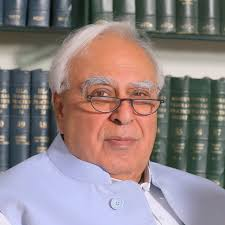kapil sibal
Kapil Sibal is a prominent Indian politician, lawyer, and public intellectual known for his significant contributions to India’s legal and political landscape. Over a career spanning several decades, Sibal has worn multiple hats—those of a lawyer, parliamentarian, union minister, and now a member of the Rajya Sabha. His journey reflects a deep commitment to public service, advocacy for justice, and a nuanced understanding of India’s complex socio-political environment.
Table of Contents
Early Life and Education
Kapil Sibal was born on August 8, 1948, in Jalandhar, Punjab, into a family that valued education and public service. His father, Hira Lall Sibal, was a renowned advocate who practiced in the Supreme Court of India. Following in his father’s footsteps, Sibal pursued a career in law, but not before establishing a strong academic foundation. He completed his schooling at St. John’s High School in Chandigarh and later graduated from St. Stephen’s College, Delhi University, with a degree in history.
Sibal’s passion for law took him to Harvard Law School, where he earned his LLM degree. This international exposure not only broadened his legal acumen but also gave him a global perspective on issues of justice, governance, and human rights. Upon his return to India, Sibal quickly established himself as a leading lawyer in the country, with a reputation for handling complex and high-profile cases.

Legal Career
Kapil Sibal’s legal career is marked by several landmark cases that have had a lasting impact on Indian jurisprudence. He has appeared in the Supreme Court of India in various capacities, including as a senior advocate and as a designated senior counsel. His expertise spans a wide range of legal fields, including constitutional law, corporate law, and intellectual property rights.
One of the most notable cases in his legal career was the challenge to the constitutionality of the Prevention of Terrorism Act (POTA). Sibal argued against the misuse of this law, which he believed was being used to target minority communities and suppress dissent. His advocacy contributed to the eventual repeal of POTA in 2004.
Sibal has also been involved in several high-profile corporate cases, including representing major companies like Reliance Industries and Vodafone in complex legal battles. His legal acumen and persuasive skills have earned him a reputation as one of India’s top lawyers, and he has been a regular fixture in the Supreme Court for decades.
Entry into Politics
Kapil Sibal’s foray into politics was almost a natural progression, given his background in law and his family’s legacy of public service. He officially entered politics in 1998 when he was elected to the Rajya Sabha as a member of the Indian National Congress (INC). His entry into the political arena was marked by his ability to articulate complex legal and policy issues in a way that was accessible to the general public.
Sibal quickly became a key figure in the Congress party, known for his eloquence, legal expertise, and ability to navigate the intricacies of policy-making. His rise in the party was swift, and he was soon appointed as a spokesperson for the INC, where he played a crucial role in shaping the party’s communication strategy.

Ministerial Roles
Kapil Sibal has held several important ministerial portfolios in the Indian government, particularly during the United Progressive Alliance (UPA) regimes led by the Congress party. His ministerial career is distinguished by his focus on education, telecommunications, and science and technology.
As the Minister of Human Resource Development (HRD) from 2009 to 2012, Sibal was instrumental in introducing several key reforms in India’s education sector. One of his most significant contributions was the implementation of the Right to Education (RTE) Act, which made education a fundamental right for children aged 6 to 14 years. This legislation was a landmark in ensuring access to education for millions of underprivileged children across India.
Sibal also played a pivotal role in reforming the examination system in India. He introduced the Continuous and Comprehensive Evaluation (CCE) system in CBSE schools, aimed at reducing the stress of board examinations and providing a more holistic assessment of students’ abilities.
In his capacity as the Minister of Communications and Information Technology, Sibal oversaw the expansion of India’s telecom sector. However, his tenure was not without controversy. The 2G spectrum allocation scandal, which emerged during his time in office, cast a shadow over the UPA government. Sibal defended the government’s decisions, but the issue remained a significant political and legal challenge.
Despite the controversies, Sibal’s tenure as a minister was marked by his commitment to leveraging technology for development. He was a strong advocate for expanding internet access in rural areas and for using technology to improve governance and service delivery.
Advocacy and Legal Activism
Even while serving as a politician, Kapil Sibal continued to be an active lawyer, often representing clients in cases of significant public interest. He has been a vocal advocate for civil liberties, minority rights, and freedom of expression. His legal activism has often brought him into conflict with the government, including during the UPA years, when he was a minister.
Sibal has also been involved in several landmark cases related to freedom of speech, including representing media organizations in cases involving defamation and sedition charges. He has consistently argued for a more liberal interpretation of free speech in India, emphasizing the need to protect dissenting voices in a democracy.
https://indianfastearning.com/
Conclusion
Kapil Sibal’s career is a testament to his dedication to public service, whether through his legal practice, his ministerial roles, or his contributions to India’s political discourse. He remains a significant figure in Indian politics, known for his legal expertise, his eloquence, and his unwavering commitment to justice and democracy. As an independent voice in the Rajya Sabha, Sibal continues to challenge the status quo, advocating for a more inclusive, just, and democratic India.







